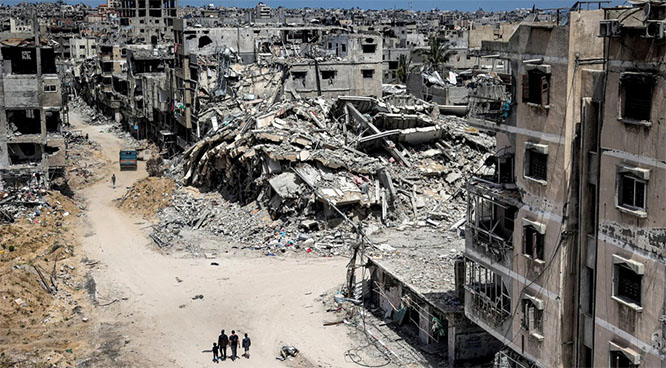London/Dubai, Jul 1: Several British banks said on Friday they had stopped dealing in Qatari riyals, as the diplomatic crisis surrounding the tiny Gulf country disrupted overseas trading of its currency.

Saudi Arabia, the United Arab Emirates, Bahrain and Egypt severed diplomatic and travel links with Qatar on June 5, accusing it of supporting terrorism and courting regional foe Iran, in allegations that have ignited a regional crisis between the US allies.
Offshore trade of the riyal has become increasingly volatile and illiquid as a result, raising risks for banks.
Barclays became the latest bank to announce it was no longer trading Qatari riyals for high street customers. The bank was the latest in a list making the same announcement.
A spokeswoman for Britain’s Lloyds Banking Group said a “third-party supplier” which handles its foreign exchange service had ceased trading in Qatar’s riyal as of June 21.
“This currency is no longer available for sale or buy-back across our high street banks including Lloyds Bank, Bank of Scotland and Halifax,” she said.
Tesco Bank said it had halted dealings in the riyal, while Barclays stopped trading riyals for retail customers but continued the service for corporate customers, a source said. Royal Bank of Scotland said it had stopped trading riyals for retail customers.
Banks from the four Arab states that have cut ties with Qatar reduced or halted riyal transactions earlier this month, as have some other countries.
Some big international banks have continued riyal business, however; a spokeswoman for HSBC said on Friday that the bank was still providing riyals for high street customers.
This week the riyal traded between offshore banks as low as 3.81 to the US dollar, its lowest level this decade and more than 4 percent below its peg of 3.64 to the dollar.
Most bankers in the Gulf do not think the peg will break; onshore, the Qatari central bank has continued to provide ample supplies of dollars near 3.6415 under its peg mechanism. The world’s biggest liquefied natural gas exporter has huge reserves with which it could defend its currency.
The Arab states opposing Qatar have set a deadline of around Monday next week — officials have not publicly specified the exact time — for Doha to agree to demands such as shutting television channel Al Jazeera and reducing ties to Iran.
Publicly, Doha has shown little sign of complying, and the four states have said they could impose fresh sanctions if their demands are not met. This threat pushed the cost of insuring Qatari sovereign debt against default to a 16-month high on Friday.
In an effort to reassure markets that the riyal was still widely traded overseas, the Qatari central bank declared in the early hours of Friday that it would guarantee all dealings for customers inside and outside Qatar.
“Qatari riyal’s exchange rate is absolutely stable against the US dollar, and its exchangeability inside and outside Qatar is guaranteed at any time at the official price,” the central bank said, calling reports that some exchange companies had stopped buying the riyal “baseless.”
So far, however, the central bank has not taken the step which bankers say may be necessary to stabilize the offshore currency market: massive dollar-selling intervention.
Some Gulf bankers believe the central bank thinks such radical action is unnecessary; Qatar gets most of its dollar supplies from oil and gas exports, which are controlled by the government, so it does not need to fear offshore trade will suck dollars away from onshore companies which need them.
A source at an investment manager in London, however, said intervention to drive the offshore riyal rate back to 3.64 could be dangerously expensive for the central bank.
“In a month, two months’ time, we would start to see the reserves numbers going down massively, and that could start a panic on the currency.” The alternative to intervention is “the currency grinds down weaker and weaker from here,” he added.
Exchange company Travelex said on Thursday it had resumed purchasing the Qatari riyal globally after a brief suspension “due to business challenges.”
But some exchange houses are demanding increasingly punitive rates because of the risks. Two exchange houses in Dubai told Reuters this week they would buy 1,000 Qatari riyals for only 710 or 720 UAE dirhams – far below the 970 dirhams which they offered before the crisis.







Comments
Add new comment